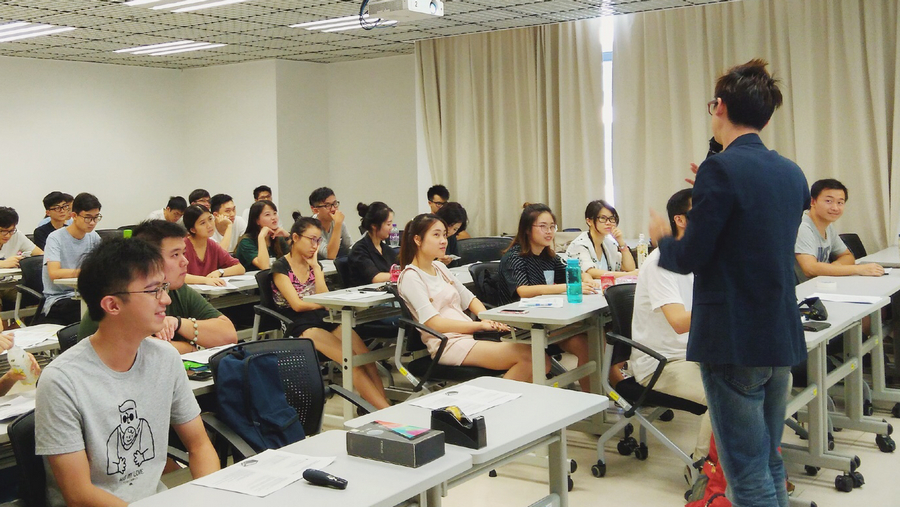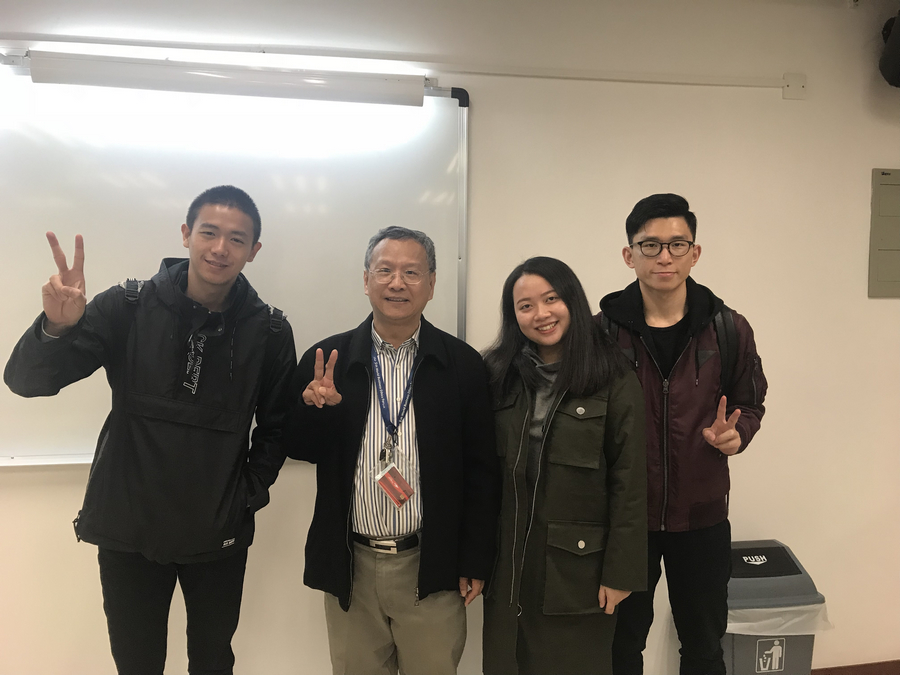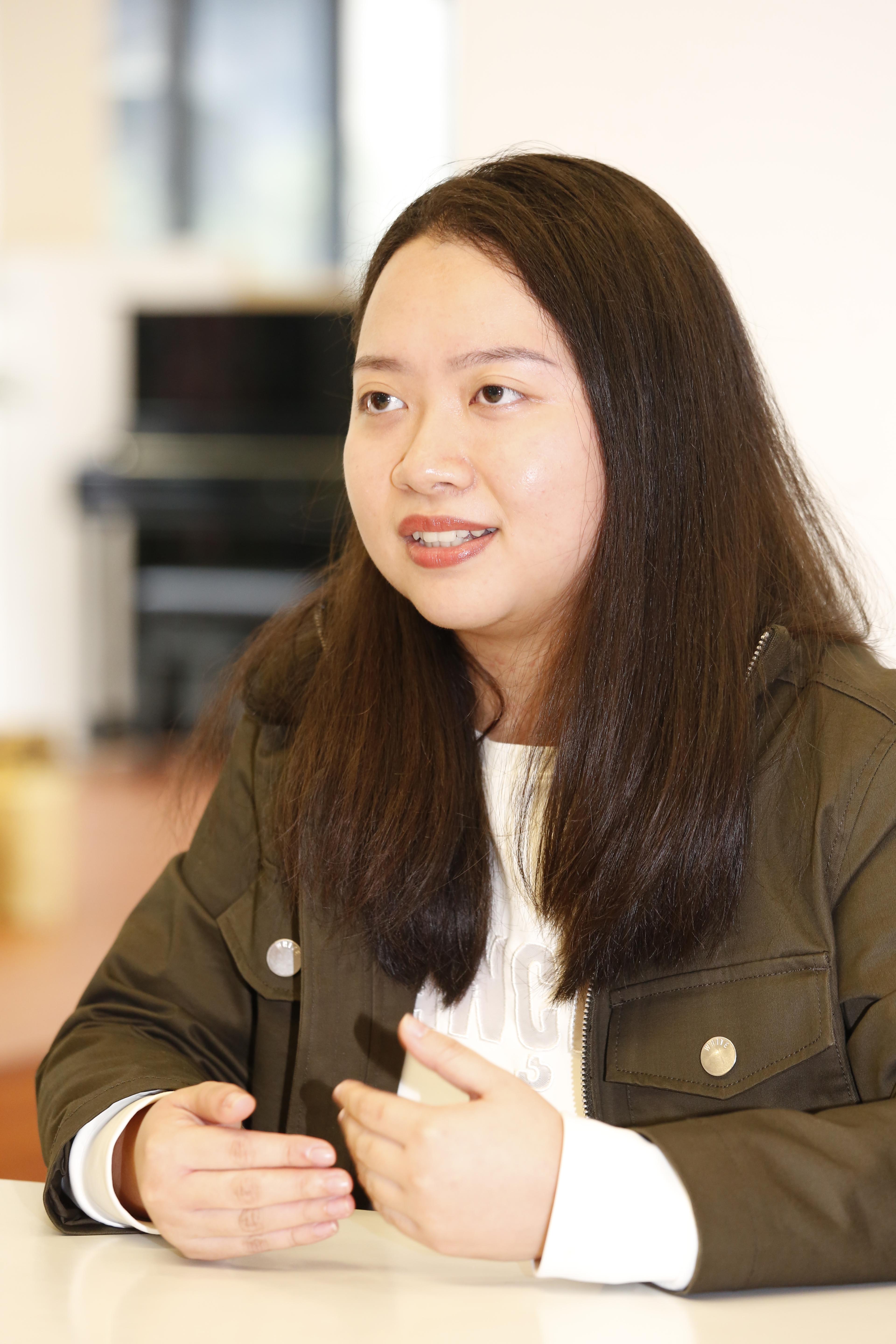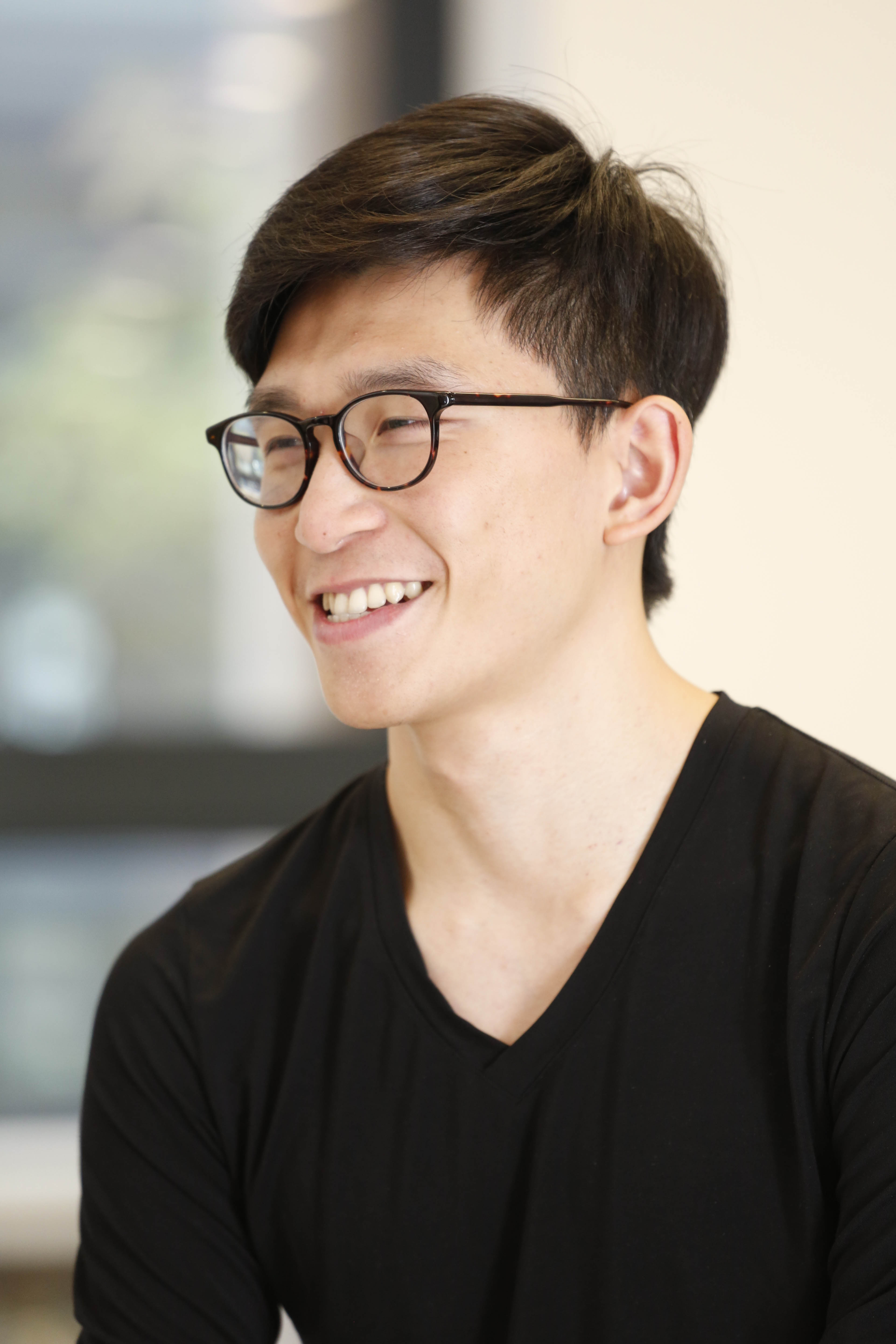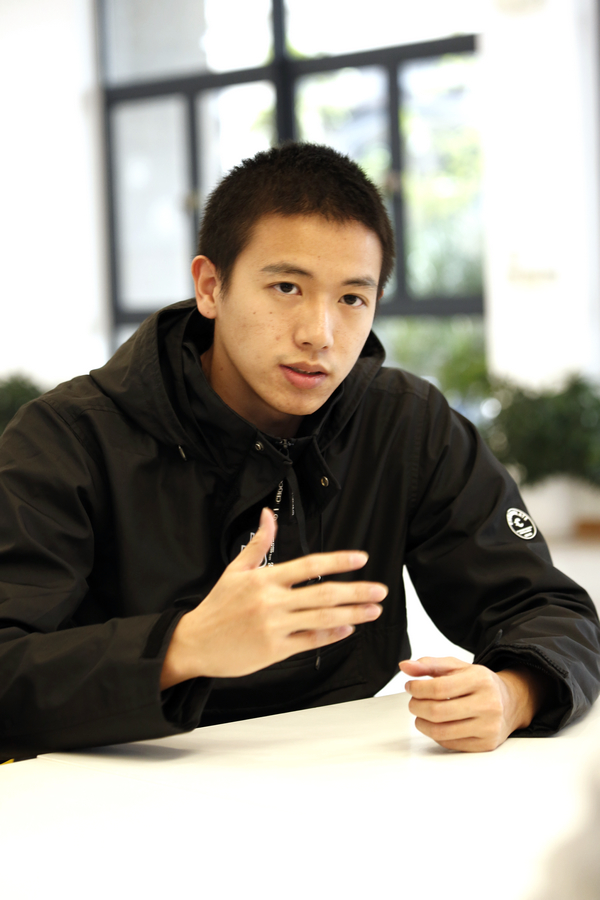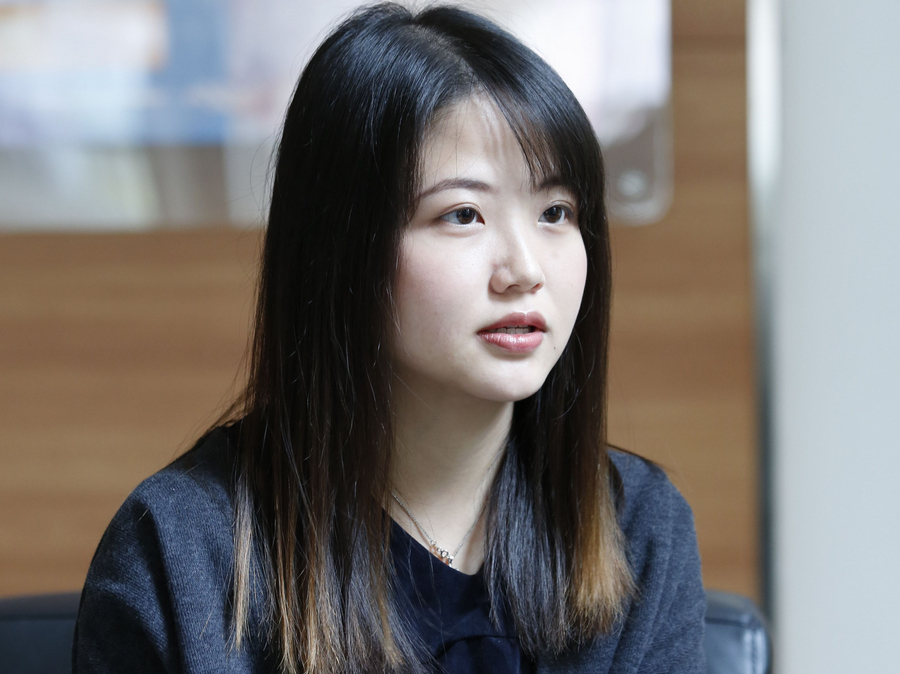Source: umagazine
University graduates who have no desire to be tethered to a job, and who dream of turning their creativity into a product or a service, face many daunting challenges. They may not even know where to begin. To assist students to find their footing in kick-starting an entrepreneurial initiative, and teach them the nitty-gritty of running a business, the University of Macau (UM) has, in the 2017/18 academic year, and for the very first time, launched an elective programme in innovation and entrepreneurship. In the second semester, it will be extended to postgraduate students. To find out how useful this programme is for students, we interviewed several students who are behind two business initiatives aided by this programme: the ‘Smart Closet’ and ‘Ride Sharing’.
Integrating AI and 3D Technology
The programme’s principal aim is to teach students how to set up a breakthrough product or service, how to manage its sales and marketing capability, protect its intellectual property rights, prepare a business proposal and stage road shows. In other words, the programme aims to turn them into future entrepreneurs, lock, stock and barrel. They are given the basic know-how for setting up a business and the opportunity to learn the ropes by running an innovative enterprise. Tree of the students, Maggie Mai, Kevin Zheng, and Damon Xu, from the Department of Finance and Business Economics, developed the innovative ‘Smart Closet’ business concept.
Their business concept is predicated on the integration of AI and 3D technology to create a clothes closet. ‘Our service users need not be physically present in clothing stores,’ says Mai. ‘They can make use of our smart system to try on garments of different types or styles in the comfort of their own homes.’
Inspiration from a Favourite Childhood Game
Interestingly, this concept had its origin in Mai‘s favourite childhood game of playing ‘mix and match’. She explains that users of their system need only to put on a form-fitting garment and photograph themselves from different angles to build their own personal 3D model. They can also scan their personal garments at home. The AI system will automatically produce the perfect mix-and-match. No visit to the mall is necessary. Besides simulating user garment fittings, the AI technology will parlay their preferences into developing their own styles or fashion sense. What’s more, they can be improved incrementally over time.
Confident the Service Will Be Cool with Customers
Xu declares that he is confident that the service will find favour with customers. ‘Our plan involves signing a contract with our customers. In the first year, all fees are waived. In the second, our company will begin to extract a profit, and in the third, advertising revenues will be generated accordingly,’ he says. ‘This system is so smart that when users are trying on the mix-and-match, the AI system will suggest an appropriate recommendation, thereby addressing customer needs and boosting sales of merchandise at the same time. It is a win-win situation.’
The Programme to Discover Your Entrepreneurial Creativity
The key to a successful enterprise is having a good team, according to Zheng. ‘This programme has been great in helping us find good business partners. It also assists us in discovering creative ideas and learning the skills and knowledge necessary to start a business,’ Zheng says. ‘Our professor not only passes on the nitty-gritty of business establishment and operation, he leaves no stone unturned in his analysis. The programme’s highlight is the one minute elevator pitch by each team to sharpen our persuasive sales and communication skills.’
Rosy Prospects for the Business
Currently, what’s lacking in this particular team is IT expertise. For this reason, members hope to attract partners from the Faculty of Science and Technology. All three existing partners are very optimistic about their business prospects. Mai ends by thanking the university for being ‘very supportive of student entrepreneurship, and for providing numerous platforms for this purpose. There are now opportunities galore for students to make the dream of having their own business come true.’
Macao Ride-sharing Platform
Another team is the ‘Ride Sharing’, the first resource sharing transport platform in Macao. The creator of this concept ‘Macao Ride-sharing Platform’ is Si Kei Kei, a fourth-year student from the Faculty of Business Administration. She points out that ‘ride-sharing is nothing new to mainland students, but in Macao, it is a brand-new concept.’
All three founders hail from the programme. Si says, ‘Students in the programme come from different disciplines and professions. This is a good place to find like-minded partners which is not always an easy thing to do. But this programme brings us together.’
Targeting Two Potential Pools of Clients
The ride-sharing system makes use of big data, internet technology, and telecommunications techniques to create a seamless digitised network. But they still lack an IT-savvy partner, and welcome any UM student with this expertise to join them.
The service targets students from higher education and employees from the gaming industry in Macao as their primary clientele. The reason for this is that members of these two groups are not known to be frequent users of the taxi service. Their service is therefore unlikely to have an adverse impact on the taxi industry. Besides, these potential riders keep fairly regular hours going to and from class or work. And they all carry IDs confirming their status, thus guaranteeing passenger safety. ‘We will set up a ride review system for both car owners and passengers, so that both can exercise a certain amount of choice in the use and provision of service. Users only pay for their service through gratuities. Consequently, this service will have minimal impact on the ride-hailing industry,’ says Si.
Reducing Transport Hassles
Si believes that this ride-sharing service will be a boon to users, reducing their transport hassles, and getting them to their destinations more conveniently. ‘As for car owners, we will offer them certain incentives, such as gratuities or credit points and lucky draws,’ she says. Phase I of the investment will commence this summer, with the funds attracted used for launching and promoting the business. Phase II will kick off early next year, with business development as its focus.
Calling for Multi-angle Thinking
Prof Jerome Yen is at pains to point out that the primary purpose of the programme is to invite students to find the pressure points in any life situation and to attack any problem from multiple angles, thereby keeping the business more down-to-earth. He adds that while some proposals or solutions may be subject to certain legal constraints, he still hopes that students will approach them with an open mind and from a rational perspective. This is the first essential step in nurturing outstanding entrepreneurial talent.
Transforming the Fruits of Scientific Research: UM Promotes Innovation and Entrepreneurship
Innovations from Academic-industry Collaboration Keeping Investor Doors Open

